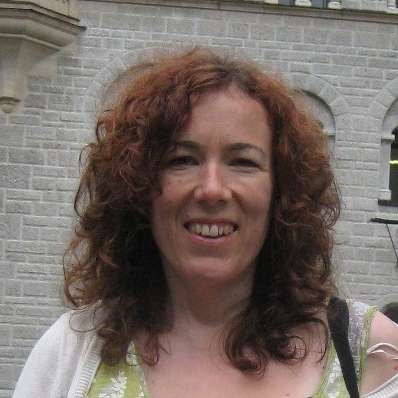Purcell’s The Fairy Queen is a tricky thing to stage. It’s not an opera, with its own story-line, but a masque, a series of musical interludes intended to slot into a performance of Shakespeare’s A Midsummer Night’s Dream. One solution could be just to perform it in concert, but the music is so dramatic that it lends itself wonderfully to stage action. The other option is to construct an entirely new drama around the text, as Philip Pickett did so cleverly last year.
ETO however opted for a middle way, with a loose story-line, set in the Bedlam asylum, and featuring the Victorian artist Richard Dadd, who found inspiration in Shakespeare’s play for many of the paintings he produced whilst locked up in Bedlam. Dadd was played by tenor Mark Wilde, and it was a treat to see him back on top form, as he was suffering from a cold last time I heard him. He played Dadd beautifully as a vulnerable, hesitant patient, never quite sure what was going on, but exhibiting a childlike delight in his birthday entertainment that formed the second half. Only when he sang did he seem released from his inner torments, and his voice had a rich power whilst maintaining the agility required to navigate Purcell’s elaborate lines.
Wilde’s acting brought out the best in the other singers, particularly the nurses, as they gently guided him around the stage, or patted him on the back with a well-done after one of his arias, but without him they often seemed unconvinced by what they were doing. As well they might, for although the asylum setting was an interesting experiment, it lacked the panache that Purcell’s very sexy music demands. The two acrobats on stage were awkward and heavy footed, and when they openly mocked the patients, they overstepped the bounds of good taste. Aiden Smith, however, was a scarily deranged Drunken Poet, and he also took the part of Corydon in the Dialogue between Corydon and Mopsa, which worked well. Mopsa was a raggedy transvestite, in reference to a sketch by Richard Dadd of a decidedly butch-looking woman called Crazy Jane, and sung by counter-tenor Michal Czerniawski. Smith and Czerniawski extracted plenty of laughs from this scene, culminating in Smith’s horror when he put his hand on Czerrniawski’s thigh (whilst singing “Fie fie”!) and discovered that his Mopsa was really a man.
The weaknesses in the staging and acting were more than compensated for by some lovely singing from the small cast of just eight singers, and fantastic playing from ETO’s newly formed period instrument orchestra, The Old Street Band. Nina Lejderman’s See the Night, a lullaby in a brief moment of calm in the ward, was beautiful, her voice dark and tender. The tight, well-blended ensemble singing was particularly pleasing, and I enjoyed young tenor Antony Gregory’s One Charming Night, accompanied with some lovely recorder playing. The gorgeous, heart-breaking soprano aria O Let me ever, ever weep was transplanted to the beginning of the second act and sung beautifully, again by Nina Lejderman.
The production began to come to life during the lover’s scenes, when everyone on staged donned delicately pretty winged masks, and gently acted out the pageant with a pair of puppets. But the real magic of the show came from the bewitching aerialists James Frith and Lisa Whitmore, clad in sky-patterned body suits, and crowned with wreaths of leaves. The work opened with them silhouetted against a full moon, in true Midsummer Night Dream style, and during the overture they treated us to an amazingly display that defied the laws of physics and perfectly suited Purcell’s music. It is a credit to the orchestra that they still made us pay attention to their exuberant playing, when they could easily have been upstaged by the acrobatics.
ETO’s production has been heavily criticised in some quarters, but although there are weaknesses in the staging, they are more than made up for by Mark Wilde’s utterly convincing portrayal of Richard Dadd, for the captivating aerialists and the overall strength of the musical performance.


